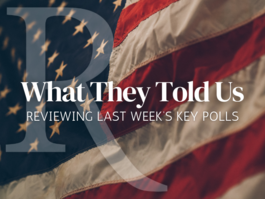Out of the Closet on Proposition 8
A Commentary By Debra J. Saunders
I voted against Proposition 22, the same-sex marriage ban, in 2000. I figured that if same-sex couples want to marry, why not let them? I believe in marriage. I don't want gay people to feel marginalized. But 61 percent of California voters thought otherwise.
In November, Proposition 8, a follow-up same-sex marriage ban, was on the ballot.
This time, I was so conflicted, I punted. I did not vote either way. I'm not proud of my nonvote, but as I watch the fallout from Proposition 8's 52 percent victory, I've seen things that are forcing me out of my closet.
A slow burn has been building since 2004, when San Francisco Mayor Gavin Newsom decided that he could flout the state marriage laws and authorize same-sex weddings in City Hall.
Worse, that prank threw the same-sex marriage issue to the courts -- when it was clear that, within a matter of years, California voters would legalize same-sex marriage -- and the issue would be settled for good. Instead, Newsom ensured same-sex marriage would remain a culture-war staple -- while enraging many folks, who as mere citizens can't pick and choose which laws they follow. Then in 2008, by a 4-3 margin, the California Supreme Court decided to reward Newsom's law-breaking. Chief Justice Ron George argued that because the Legislature had passed domestic partnership legislation that confers the same benefits to same-sex couples enjoyed by married heterosexuals (except for the status of official marriage) domestic partnerships "realistically must be viewed as constituting significantly unequal treatment to same-sex couples."
Justice Marvin Baxter's dissenting opinion scolded the majority, noting that the court "does not have the right to erase, then recast, the age-old definition of marriage, as virtually all societies have understood it, in order to satisfy its own contemporary notions of equality and justice."
That sentence hit home.
There has been too little recognition of the fact that marriage has been limited to unions between members of the opposite sex since about as long as there have been laws.
Activists would argue that Prop. 8 "took away" their rights -- as if the five months between the George decision and Prop. 8's passage outweigh thousands of years of human history.
After Canada legalized same-sex marriage in 2005, the government commissioned a study to debunk the argument that same-sex marriage laws could lead to the unintended consequence of legalized polygamy. Oops. The authors supported recognizing polygamy.
Back in California, domestic partnerships provided all the benefits that came with same-sex marriage a la Ron George -- except the name "marriage." And be it noted, the same-sex marriages that occurred during the five months weren't equal to heterosexual marriages either. Couples did not enjoy federal recognition, such as Social Security spousal benefits and family status for immigration purposes.
In other words, when activists complain that Proposition 8 "took away" their rights, the only right changed was the ability to call themselves married under state law. The other benefits stand.
Brookings Institution guest scholar Jonathan Rauch wrote a piece that will appear in the South Texas Law Review that makes a solid "traditionalist" case for same-sex marriage: Gay people exist. They have families. They have children who need legal protection. Rauch sees "marriage's deepest roots in its function rather than its boundaries, and which emphasizes the desire of marrying gay couples to carry forward the ancient tradition rather than to upend it."
He's right. But here's the sticking point. There's a heavy-handedness to the true believers. They use public schools to push their political agenda with young kids. (I know people who were shocked they voted "yes" on Proposition 8, but they did so for that reason.) And the post-passage campaign to intimidate Proposition 8 supporters is chilling. Consider Scott Eckern, Richard Raddon and Marjorie Christofferson, who had to resign from their jobs after their private donations to Proposition 8 were outed.
Others have been subjected to death threats and intimidation. I am writing this column because last week I saw websites publicize the names, addresses and employers of small donors, turned civilian targets.
Even before Proposition 8 passed, San Francisco Superior Court judges voted to bar judges from taking part in the Boy Scouts (because the Boy Scouts bar gay Scout masters); local governments pulled support for similar groups. And those intolerant acts occurred when the state had different laws for different couples.
I couldn't vote against gay couples, but I also couldn't vote to create a new class of pariahs. The gay community's failure to show tolerance is costing it friends.
COPYRIGHT 2009 CREATORS SYNDICATE, INC.
See Other Political Commentary
See Other Commentary by Debra J. Saunders
Views expressed in this column are those of the author, not those of Rasmussen Reports.
Rasmussen Reports is a media company specializing in the collection, publication and distribution of public opinion information.
We conduct public opinion polls on a variety of topics to inform our audience on events in the news and other topics of interest. To ensure editorial control and independence, we pay for the polls ourselves and generate revenue through the sale of subscriptions, sponsorships, and advertising. Nightly polling on politics, business and lifestyle topics provides the content to update the Rasmussen Reports web site many times each day. If it's in the news, it's in our polls. Additionally, the data drives a daily update newsletter and various media outlets across the country.
Some information, including the Rasmussen Reports daily Presidential Tracking Poll and commentaries are available for free to the general public. Subscriptions are available for $4.95 a month or 34.95 a year that provide subscribers with exclusive access to more than 20 stories per week on upcoming elections, consumer confidence, and issues that affect us all. For those who are really into the numbers, Platinum Members can review demographic crosstabs and a full history of our data.
To learn more about our methodology, click here.



